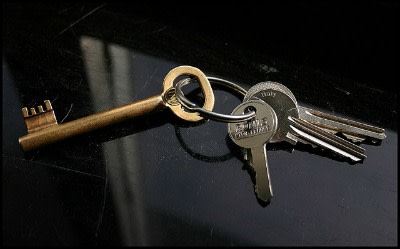

This is part two in our four-part series on conflict. Last time we looked at why conflict is actually helpful. Today we’ll talk about the importance of humility in conflict resolution.
Humility is one of our core values at Credera. But it has to be practiced and lived out for others to believe it’s not just a stated value. Humility is not thinking less of yourself, rather it is thinking of yourself less. This is important because humility is key to turning conflict into opportunity.
Look to the Greater Good
Conflict isn’t about winning. It’s not about getting what you want. In fact, it’s not about anyone’s gain or loss, but about the greater good
If you’re going to approach conflict looking for how you can come out ahead, then you’re going to miss the bigger opportunity. Don’t focus on yourself. Of course it would also be a mistake to go to the opposite extreme and let others walk all over you. Instead you need to confront conflict, not looking for anyone’s gain, but seeking relationship reconciliation, which is good for your organization and your mission.
For Rob and I it would be a failure if either of us got our way to the detriment of our relationship or the firm. But what was truly valuable was finding a way to work together and move forward. It wasn’t about our egos, but the success of Credera. That can only happen when we stop thinking about ourselves.
Look in the Mirror
All of that is true—but good conflict resolution does start with you. And for that you need to look in the mirror. This isn’t about your own importance but about taking responsibility. It takes more than one person to have conflict and you have a role and a responsibility in any conflict.
Before confronting someone you need to examine yourself.
Looking in the mirror can be painful. It forces me to deal with my own issues and move away from trying to fix the other guy. It’s much easier to think about what the other person needs to do. But that is not how it works. Below are some of the questions I had to work through:
– Where have I created a lack of trust or confidence through my words or behavior?
– Where have I been wrong? When have I potentially wronged others?
– Where am I causing disunity among our leadership?
– Am I bringing the right things up in the appropriate way when we discuss a variety of topics?
– Does this person trust me?
– After listening carefully, where do I need to ask for forgiveness?
Confronting conflict starts with you. You need to do it for the right reasons, you need to take responsibility and you need to have a humble attitude. It’s not easy—it requires swallowing your pride. But in my experience, when I stop focusing on how I can win, it frees me up to think about the greater good of the team.
Next time we’ll talk about how to confront conflict.
This is Part 4 in a 4-part series on Conflict at Credera. If you missed Part 1, you can read it here. We also encourage you to read Part 3 and Part 4.
Contact Us
Let's talk!
We're ready to help turn your biggest challenges into your biggest advantages.
Searching for a new career?
View job openings